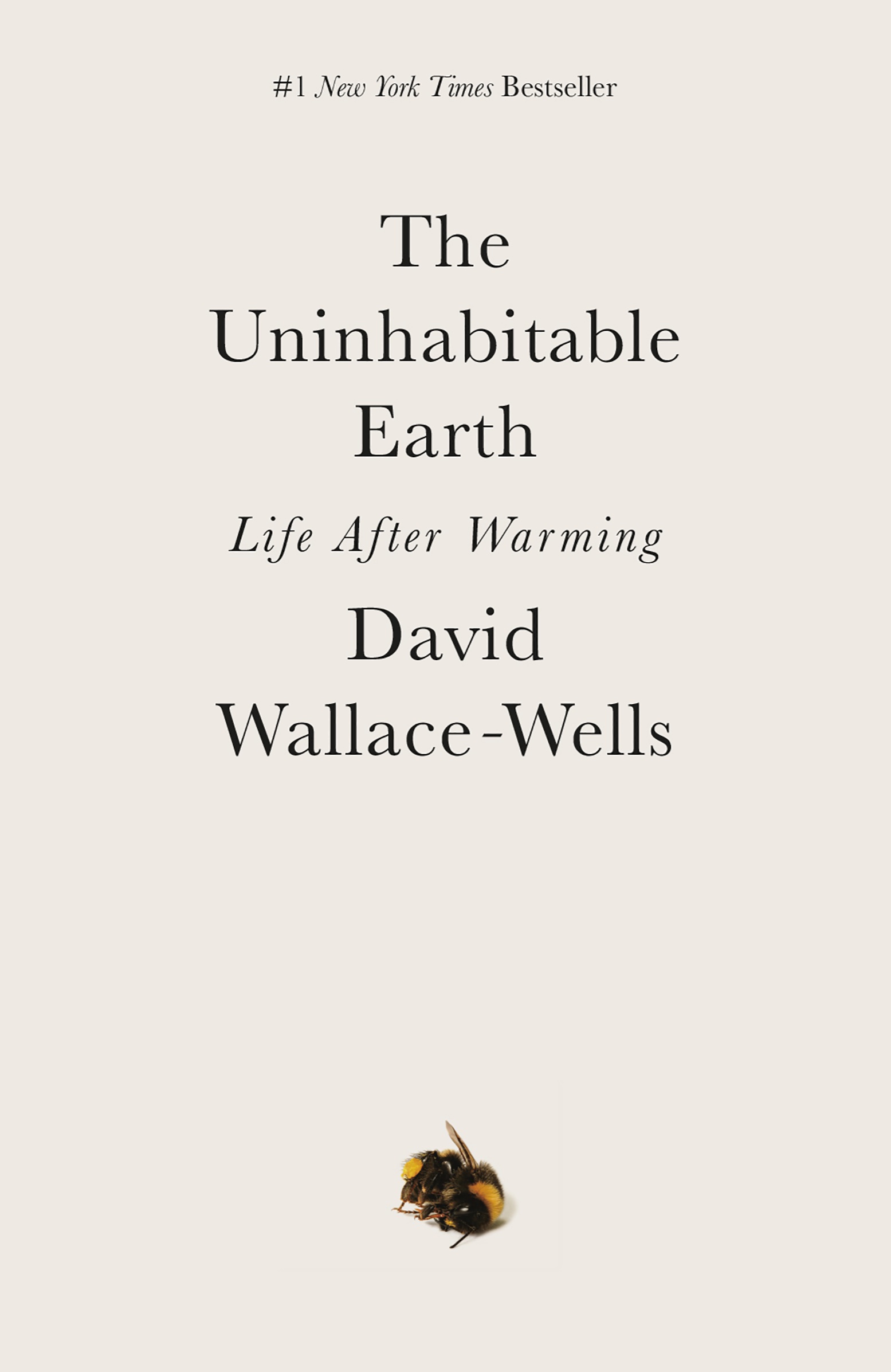David Wallace-Wells: Insights on Climate, Science, and Society
by Skylar Fetter

David Wallace-Wells book The Uninhabitable Earth: Life After Warming
Bestselling author and current New York Times science journalist David Wallace-Wells will speak at the Marriott Library Gould Auditorium on Tuesday, Oct. 24, 2023, at noon as part of the Tanner Lecture on Human Values Series.
Wallace-Wells is an expert in science communication and journalism. In 2017, his essay "The Uninhabitable Earth" became the most-read article in New York Magazine history. In this essay, Wallace-Wells created a seminal body of work built of "the result of dozens of interviews and exchanges with climatologists and researchers in related fields and reflects hundreds of scientific papers on the subject of climate change." The piece was widely read, and comments on the essay continued to accrue even four years later. He published a book of the same title in 2019, expanding on the themes of the biosphere's future and related scientific predictions first explored in the 2017 piece.
Described as "an extremely adept storyteller, simultaneously urgent and humane despite the technical difficulty of his subject," by Slate, Wallace-Wells has continued to write extensively on issues of climate and societal impact over the last decade. With a focus on public-facing work, Wallace-Wells harnesses his talents as a communicator and leader in the field of climate science in his New York Times newsletter, allowing readers to gain a closer look at issues of technology and future scientific explorations.
Wallace-Wells’ cutting-edge writing often spans topics across the field of scientific advancement and development in the natural world. He wrote on wildfires and forest management in September of this year, "If we thought trees might save us, that is looking increasingly like a foolish bet. In many parts of the world, including some of the most densely forested, trees are not perfect allies for tree-huggers anymore, and forests are no longer reliable climate partners."
Wallace-Wells often confronts and challenges issues that are especially urgent to the global public in a way that demands the reader pay attention to the environment around them. In tackling such issues, he has been no stranger to controversy in his career and dissects long-standing debate problems regularly. This kind of fearless writing has made Wallace-Wells a recognizable voice in scientific circles eager to discuss new ways of land management and economic growth in the climate sector. His interdisciplinary work draws on experts in all fields and seeks to reach a broad audience, ranging from trained scientists to casual readers. His work relies on this cross-disciplinary communication to create global cooperation methods in future science policy and adaptation.
His 2019 feature in The Guardian, titled "Adapt or Die. That is the Stark Challenge to Living in the New World we Have Made," poses questions about future ecosystems and our human place. By investigating the scale of ongoing variations in climate and natural disasters, Wallace-Wells urges for a change in how technology is used to address changing environmental challenges. He writes, "The challenges will grow, in some cases exponentially, but the blueprint of adaptation is there for all to see, a photo-negative of all of the impacts that scientists have told us to expect even within the next few decades." In many ways, David Wallace-Well's writing provides a perspective on how to look to the future of scientific advancement with eager expectation and cautious realism in the hopes that we will better understand our role as human participants in the natural world.
MEDIA CONTACTS
Missy Weeks, Tanner Humanities Center
missy.weeks@utah.edu |801-581-8879
Published October 13, 2023
